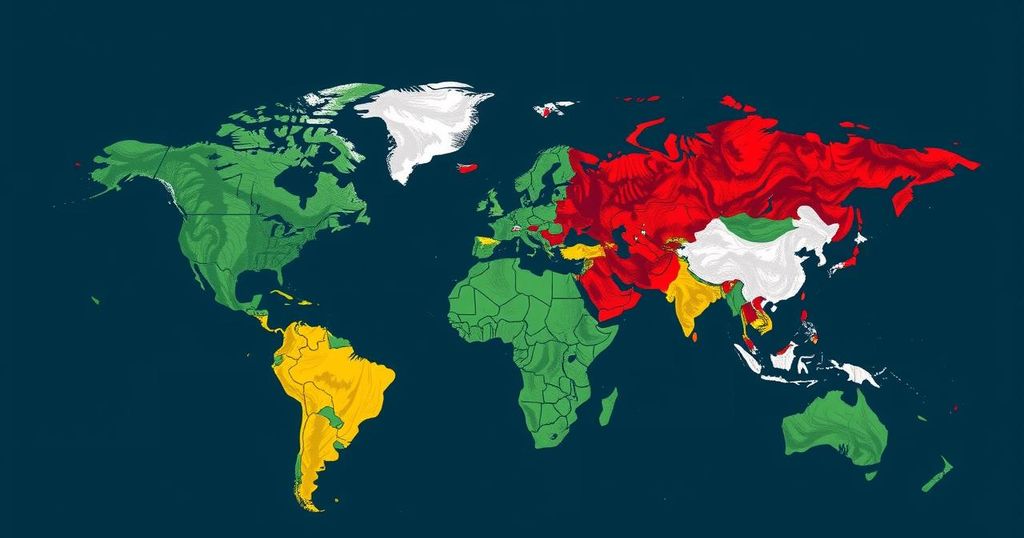Wars and Climate Change: Challenges Faced at COP29 UN Climate Summit
At COP29 in Baku, ongoing wars complicate global climate negotiations, as activists and world leaders highlight the need for urgent funding support for vulnerable nations. Climatic impacts worsen due to geopolitical tensions, creating a pressing need for collaborative action. Activists call for a shift from military expenditure to climate action, emphasizing the importance of urgent negotiations to secure meaningful support for impacted regions amid ongoing conflicts.
At the COP29 UN climate summit in Baku, activists, including climate advocate Nisreen Elsaim, highlighted the intertwining challenges of war and climate change. Elsaim, whose life was uprooted by civil conflict in Sudan, emphasized the dire need for successful negotiations to secure funds from wealthier nations to aid countries like hers in adapting to climate change. This year’s climate talks face significant hurdles, particularly due to ongoing wars in Gaza and Ukraine, which detract from the focus on climate issues and jeopardize cooperative global responses. Activists have joined forces to demand justice, stressing that military conflicts divert vital resources from combating climate change. World leaders voiced concerns that climate change exacerbates existing geopolitical tensions and threatens food and water security, further complicating efforts to establish collaborative solutions. Experts contend that continuing conflicts limit the ability to focus on shared interests, thereby hindering effective climate action. As illustrated by the disruption caused by warfare, leaders are urged to prioritize climate commitments and redirect funding from military expenditures to sustainable solutions. Despite the complex challenges posed by the current geopolitical landscape, there remains a determination among many stakeholders to achieve aggressive climate goals and bolster support for vulnerable regions, underscoring the imperative for transformative actions sooner rather than later.
The ongoing intersection of war and climate change presents an urgent challenge at global conferences such as COP29. Regions affected by conflict, like Sudan and Ukraine, are experiencing severe disruptions in both humanitarian aid and environmental stability. The ramifications of warfare can lead to increased poverty, food insecurity, and environmental degradation, complicating nations’ abilities to respond effectively to climate crises. The summit serves as a critical platform for discussing financial aid from wealthier to developing nations, highlighting the importance of coherent global strategies in the face of divided national interests.
In conclusion, the COP29 summit in Baku reveals the profound impact of contemporary conflicts on climate negotiations and actions. The escalation of wars diverts critical resources away from addressing climate challenges and dampens prospects for international cooperation. Urgent action is needed to redirect efforts and funding toward climate adaptation, demonstrating that overcoming geopolitical divides is essential for tackling the climate crisis. The voices of activists and world leaders alike serve as reminders of the pressing need for cohesive and robust strategies to mitigate the impacts of climate change, particularly in the most vulnerable areas.
Original Source: apnews.com




Post Comment